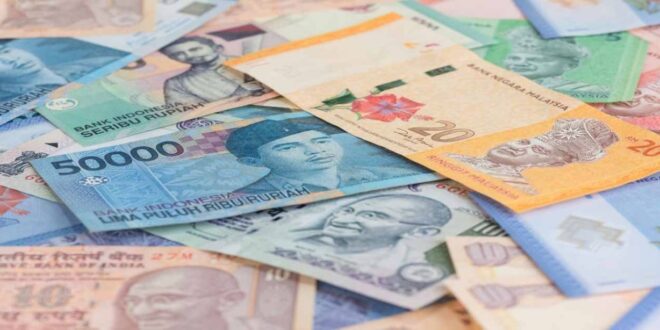Emerging Asian currencies were range-bound on Tuesday, while most equities in the region edged higher, as traders awaited inflation data from the U.S. for clues on the Federal Reserve’s monetary policy stance this year.
The baht strengthened 0.5% against the U.S. dollar after a major sell-off on Monday following Thai Prime Minister Srettha Thavisin’s remarks on rate cuts. The currency also snapped a five-day losing streak on Tuesday.
Among equities, stocks in Manila were up 0.1%, paring gains from earlier in the day when they advanced as much as 1.1% to hit their highest level since July 26, 2023.
Kuala Lumpur stocks added as much as 0.6%, hitting their highest level since Nov 25, 2022.
Comments from Fed officials overnight helped soothe sentiment, with Governor Michelle Bowman retreating from her persistently hawkish view and Atlanta President Raphael Bostic reiterating his earlier view that he does anticipate rate reductions this year.
Traders are awaiting U.S. inflation data for December due later in the week for an indication of when the Fed might start cutting interest rates.
A rate cut from the Fed would be favourable to Asian currencies and equities. Markets are now anticipating a 62% chance that the Fed could begin easing rates as early as March, compared with a nearly 90% chance a week ago, according to the CME FedWatch Tool.
“Although the market has priced in a Fed rate cut in March, investors should be wary about the possibility of a delayed move, which will pose headwinds to Asia’s capital inflows,” said Gary Ng, Senior Economist, Asia Pacific with Natixis.
Elsewhere, the South Korean won was flat after having appreciated 0.3% earlier in the day, its biggest intraday gain since Dec 28, 2023.
Shares in Seoul retreated 0.3%. The Bank of Korea (BOK) is expected to keep its policy rate unchanged for an eight consecutive meeting on Thursday as inflation eases, a Reuters poll found.
“Most Asian central banks are likely to follow the BOK stance, waiting for greater evidence of a persistent deceleration of inflation before deciding on rate cuts later this year,” said Wei-Liang Chang, macro strategist at DBS Bank.
The Malaysian ringgit ticked 0.1% higher, while the Philippine peso slipped 0.6%.
The Indonesian rupiah was flat. Stocks in Jakarta fell as much as 1.4% to post their biggest intraday loss since Dec. 18, mostly dragged down by Chandra Asri Petrochemical and Barito Renewables Energy.
“The recent correction has been on the back of correction in the infrastructure and materials stocks due to weakness in the overall commodity complex,” said Rajat Agarwal, Asia equity strategist at Societe Generale.
All eyes are on Taiwan’s presidential and parliamentary elections on Jan. 13, an election that China, which views the island as its own territory despite the strong objections of Taipei’s government, has cast as a choice between war and peace.
“Geopolitical risks over Taiwan are also a risk to watch, with reduced tensions post elections likely to catalyse a rebound in RMB and Asian currencies,” DBS Bank’s Chang said.
Markets are also looking forward to a raft of data due this week, including inflation data from India and China.
HIGHLIGHTS:
** Thailand’s exports are expected to rise 1%-2% in 2024, the Thai National Shippers’ Council said
** China closes local government offshore financing loophole – sources – Reuters
 BeritaKini.biz Berita Viral Terkini di Malaysia
BeritaKini.biz Berita Viral Terkini di Malaysia





